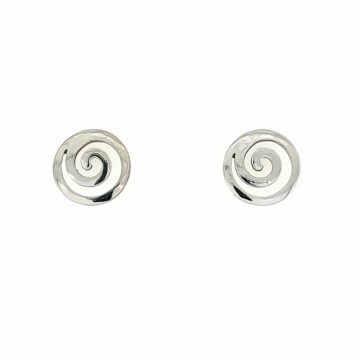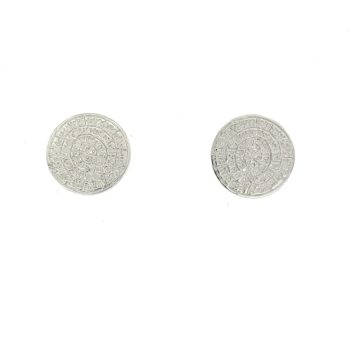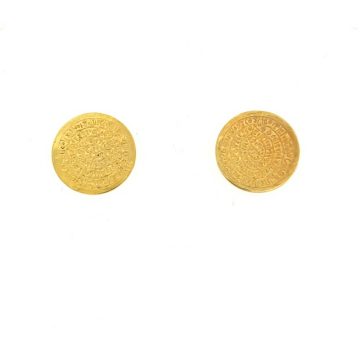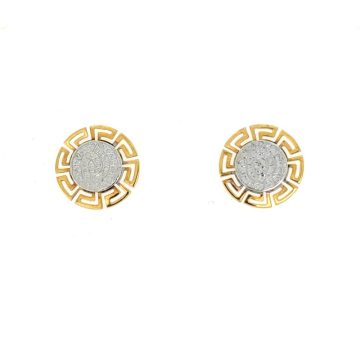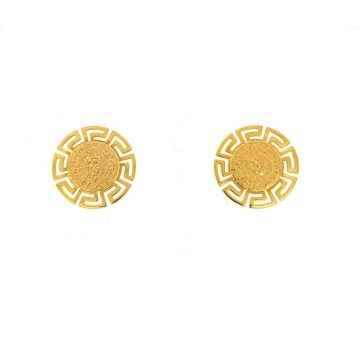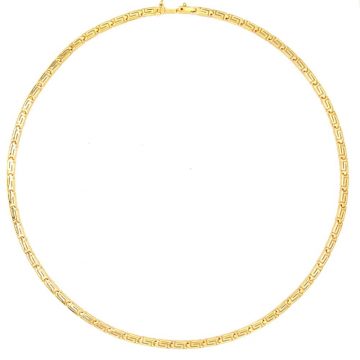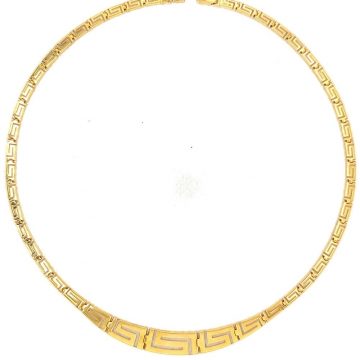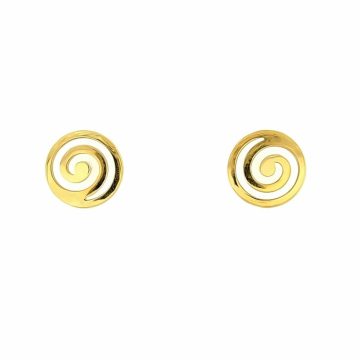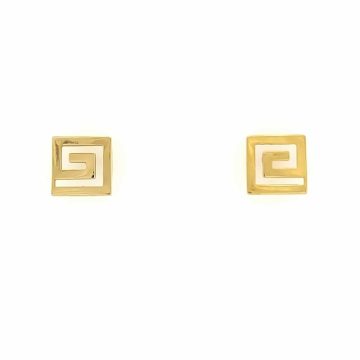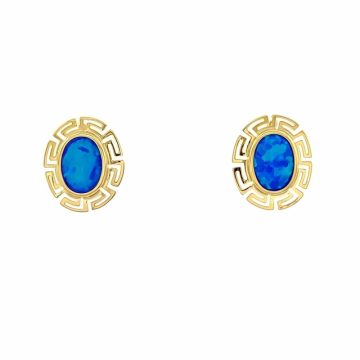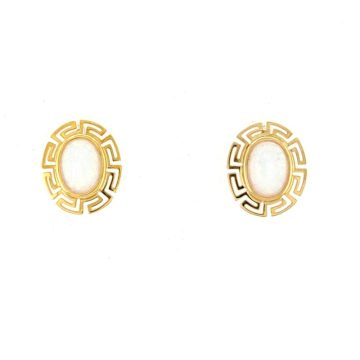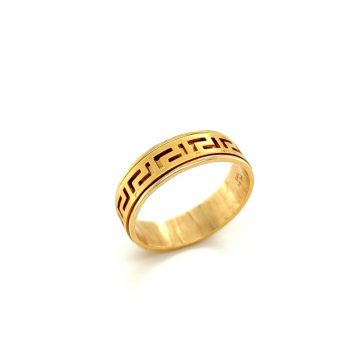Women’s earrings, white gold K14 (585°), spira
Women’s earrings in white gold K14 (585°) with the symbol of Spira. The Spira is an Ancient Greek Symbol of Life and is one of the oldest symbols and has been used since the Paleolithic era in Greece. One of the most mysterious geometric designs we find around the planet. It has been found on …
Women’s earrings, white gold K14 (585°), Phaistos Disc
Women’s earrings made of K14 white gold (585°) with the Disc of Phaistos. The Phaistos Disc is a baked clay disc, which is an archaeological find from the Minoan city of Phaistos in southern Crete and probably dates to the middle or late Minoan Bronze Age. It is one of the best-known mysteries of archaeology, …
Women’s earrings, gold K14 (585°), Phaistos Disc
Women’s earrings made of K14 gold (585°) with the Disc of Phaistos. The Phaistos Disc is a baked clay disc, which is an archaeological find from the Minoan city of Phaistos in southern Crete and probably dates to the middle or late Minoan Bronze Age. It is one of the best-known mysteries of archaeology, since …
Women’s earrings, gold K14 (585°), Phaistos Disc with meander two-tone
Women’s earrings with the Disc of Phaistos and a meander ring made of K14 gold (585°). The Phaistos Disc is a baked clay disc, which is an archaeological find from the Minoan city of Phaistos in southern Crete and probably dates to the middle or late Minoan Bronze Age. It is one of the best-known …
Women’s earrings, gold K14 (585°), disk of phaistos with meander
Women’s earrings with the Disc of Phaistos and a meander ring made of K14 gold (585°). The Phaistos Disc is a baked clay disc, which is an archaeological find from the Minoan city of Phaistos in southern Crete and probably dates to the middle or late Minoan Bronze Age. It is one of the best-known …
Women’s earrings, gold K14 (585°), spira
Women’s earrings in gold K14 (585°) with the symbol of Spira. The Spira is an Ancient Greek Symbol of Life and is one of the oldest symbols and has been used since the Paleolithic era in Greece. One of the most mysterious geometric designs we find around the planet. It has been found on countless …
Women’s earrings, gold K14 (585°), meander
Women’s earrings in gold K14 (585°) with Meander symbol. Meander is the most ancient Greek symbol of Victory and Unity, symbol of Infinity and Eternal Life. Inspired, according to some academics, by the numerous bends of the Meander river. Maendros is used in vases, temples, monuments, sculptures, objects, weapons of war, armor and jewelry.
Women’s earrings, gold K14 (585°), meander with artificial opal
Women’s earrings in K14 gold (585°) with Meander symbol and artificial opal. Meander is the most ancient Greek symbol of Victory and Unity, symbol of Infinity and Eternal Life. Inspired, according to some academics, by the numerous bends of the Meander river. Maendros is used in vases, temples, monuments, sculptures, objects, weapons of war, armor …
Women’s earrings, gold K14 (585°), meander with artificial opal
Women’s earrings in K14 gold (585°) with Meander symbol and artificial opal. Meander is the most ancient Greek symbol of Victory and Unity, symbol of Infinity and Eternal Life. Inspired, according to some academics, by the numerous bends of the Meander river. Maendros is used in vases, temples, monuments, sculptures, objects, weapons of war, armor …
Μen’s ring, gold K14 (585°) meander
Men’s ring with meander symbol with gold glossy and matte surface. The ring is made of gold K14 (585°). Meander is the most ancient Greek symbol of Victory and Unity, symbol of Infinity and Eternal Life. Inspired, according to some academics, by the numerous bends of the Meander river. Maendros is used in vases, temples, …

